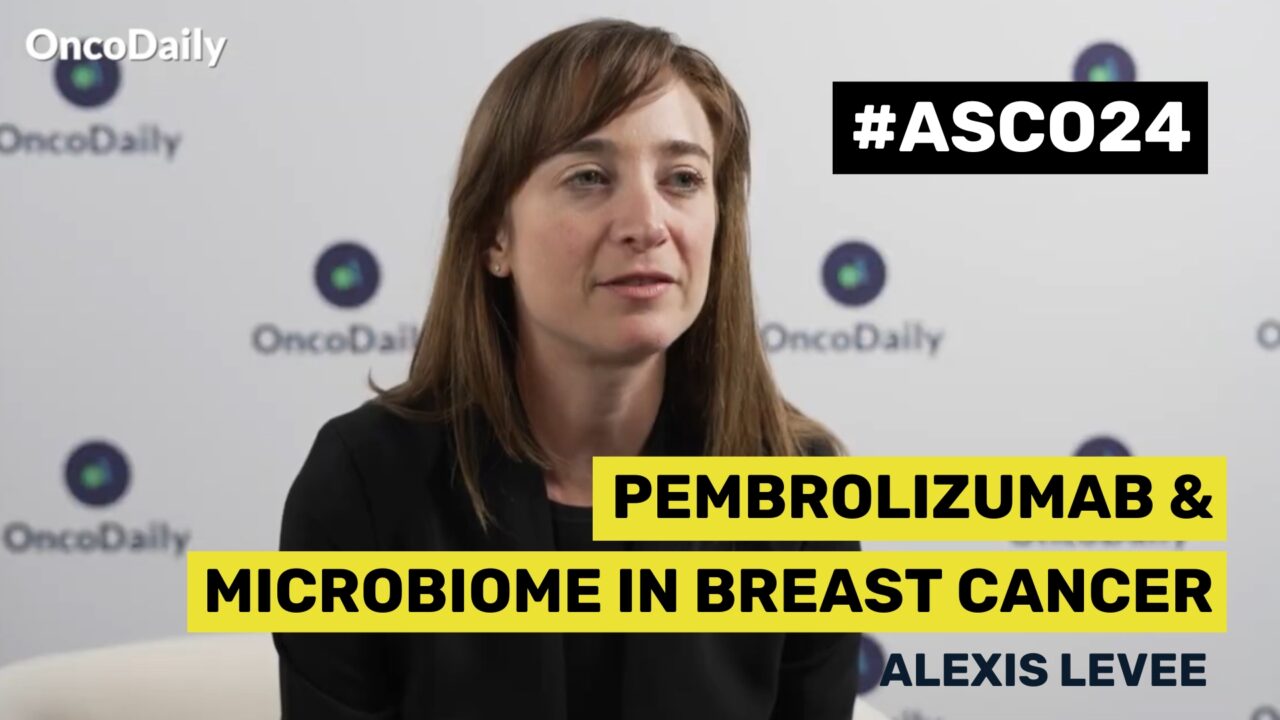The American Society of Clinical Oncology (ASCO) Annual Meeting is one of the largest and most prestigious conferences in the field of oncology. This year, the meeting took place from May 31 to June 4 in Chicago, Illinois. The event gathers oncologists, researchers, and healthcare professionals from around the world to discuss the latest advancements in cancer research, treatment, and patient care. Keynote sessions, research presentations, and panel discussions are typically part of the agenda, providing attendees with valuable insights into emerging trends and innovations in oncology.
This year, OncoDaily was at ASCO 2024 for the first time covering the meeting on-site. We had the pleasure of interviewing researchers who summarized the highlights of their work.
In this video, Dr. Alexis LeVee, Hematology and Oncology Chief Fellow at City of Hope, shared insights on ‘A phase I/II trial of palbociclib, pembrolizumab, and endocrine therapy for patients with HR+/HER2- locally advanced or metastatic breast cancer (MBC): Clinical outcomes and stool microbial profiling.‘
Hi, my name is Alexis Levy, and I’m the Hematology and Oncology Chief Fellow at City of Hope, and I’m presenting the results of a phase one, two clinical trial of pembrolizumab, palbociclib, and endocrine therapy in hormone receptor positive HER2 negative metastatic breast cancer, as well as stool microbiome analysis. So we enrolled patients from March 2017 to May 2022 to three different cohorts. Cohort one was palbociclib and endocrine therapy, and then pembrolizumab was added after patients had stable disease for at least six months.
Cohort two was pembrolizumab, palbociclib, and endocrine therapy as first line for metastatic breast cancer, and then cohort three was subsequently added to evaluate the immune potentiating effects of palbociclib given as a lead-in on day minus 28. The results showed that the PFS of the three different cohorts was not reached for cohort one and three, and was 27 months for cohort two. And the response rates were actually quite compelling.
Cohort three had a response rate of 77%. Toxicities mainly included cytopenias, as well as liver abnormalities. We also performed a stool microbiome analysis, which showed that several bacteria was able to predict response to this IO combination, namely from the genus Lachnospira alicepis and Fecali bacterium.
More videos and content from ASCO 2024 on OncoDaily.


